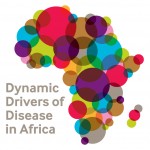 What drives differing responses to zoonotic diseases? Seven new working papers from the STEPS-led Dynamic Drivers of Disease in Africa Consortium consider understandings around ecosystems and health as they relate to four zoonoses in five countries in Africa in order to explore this issue.
What drives differing responses to zoonotic diseases? Seven new working papers from the STEPS-led Dynamic Drivers of Disease in Africa Consortium consider understandings around ecosystems and health as they relate to four zoonoses in five countries in Africa in order to explore this issue.
The papers investigate how understandings around ecosystems and health are always positioned and partial, deriving from people’s experiences, backgrounds, institutional positions and political-economic interests. Thus issues, dynamics and risks are always seen to be ‘framed’, and open to diverse representations and interpretations. These framings often take the form of ‘narratives’ about problems and possible interventions which drive and justify different intervention and responses – which in turn shape the dynamics of disease and so consequences for poverty and wellbeing.
The political economy of knowledge and policy theme of the Dynamic Drivers of Disease in Africa Consortium has explored these issues in relation to henipavirus infection in Ghana, Rift Valley fever in Kenya, Lassa fever in Sierra Leone and trypanosomiasis in Zambia and Zimbabwe. The following working papers are published under this theme:
- The political economy of One Health research and policy by Victor Galaz, Melissa Leach, Ian Scoones and Christian Stein
- Towards One Health? Evolution of international collaboration networks on Nipah virus research from 1999-2011 by Sophie Valeix
- The politics of trypanosomiasis control in Africa by Ian Scoones
- Politics of knowledge: Whose knowledge matters in trypanosomiasis policy making in Zambia by Catherine Grant
- Responding to uncertainty: Bats and the construction of disease risk in Ghana by Linda Waldman, Audrey Gadzekpo and Hayley MacGregor
- Lassa fever: The politics of an emerging disease and the scope for One Health by Annie Wilkinson
- Rift Valley fever in Kenya: Policies to prepare and respond by Erik Millston, Hannington Odame and Oscar Okumu